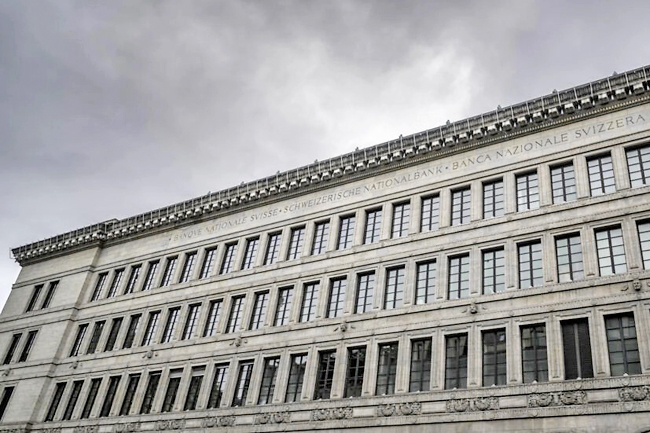AFP – The Swiss National Bank (SNB) yesterday cut interest rates for the first time since June 2022 – the first to do so among the major central banks, saying the battle against inflation was working.
The SNB eased its monetary policy and cut its rate by 0.25 percentage points to 1.5 per cent, effective from today – the first cut since June 2022.
While the United States Federal Reserve left its rates unchanged on Wednesday, the SNB changed its monetary policy for the first time since the rapid tightening initiated in 2022.
“The easing of monetary policy has been made possible because the fight against inflation over the past two and a half years has been effective,” the central bank said in a statement.
“For some months now, inflation has been back below two per cent and thus in the range the SNB equates with price stability.”
The SNB said that according to its forecasts, inflation was also likely to remain within this range over the next few years.

“With its decision, the SNB is taking into account the reduced inflationary pressure as well as the appreciation of the Swiss franc in real terms over the past year,” it said. “The policy rate cut also supports economic activity. Today’s easing thus ensures that monetary conditions remain appropriate.”
The SNB said it would be watching inflation closely and would adjust its monetary policy again, if needed, to keep inflation within the range it sees as consistent with price stability.
It said inflation had declined further since the beginning of the year, and stood at 1.2 per cent in February.
“This decrease was attributable to lower goods inflation. Inflation is currently being driven above all by higher prices for domestic services,” the central bank said. Few economists expected the SNB to cut its key rate, giving a boost to industry which is suffering from the strength of the Swiss franc. Of the nine economists surveyed by the Swiss agency AWP, seven expected the SNB to leave its key rate unchanged, but two expected it to lower it to 1.5 per cent.
Swiss industry has experienced a slowdown in orders due not only to concerns about the global economy but also interest rates pushing up investment costs.
Exporting companies are also penalised by the strength of the Swiss franc, which remains at a high level compared to the euro and the US dollar, even if it has lost some ballast since December.





